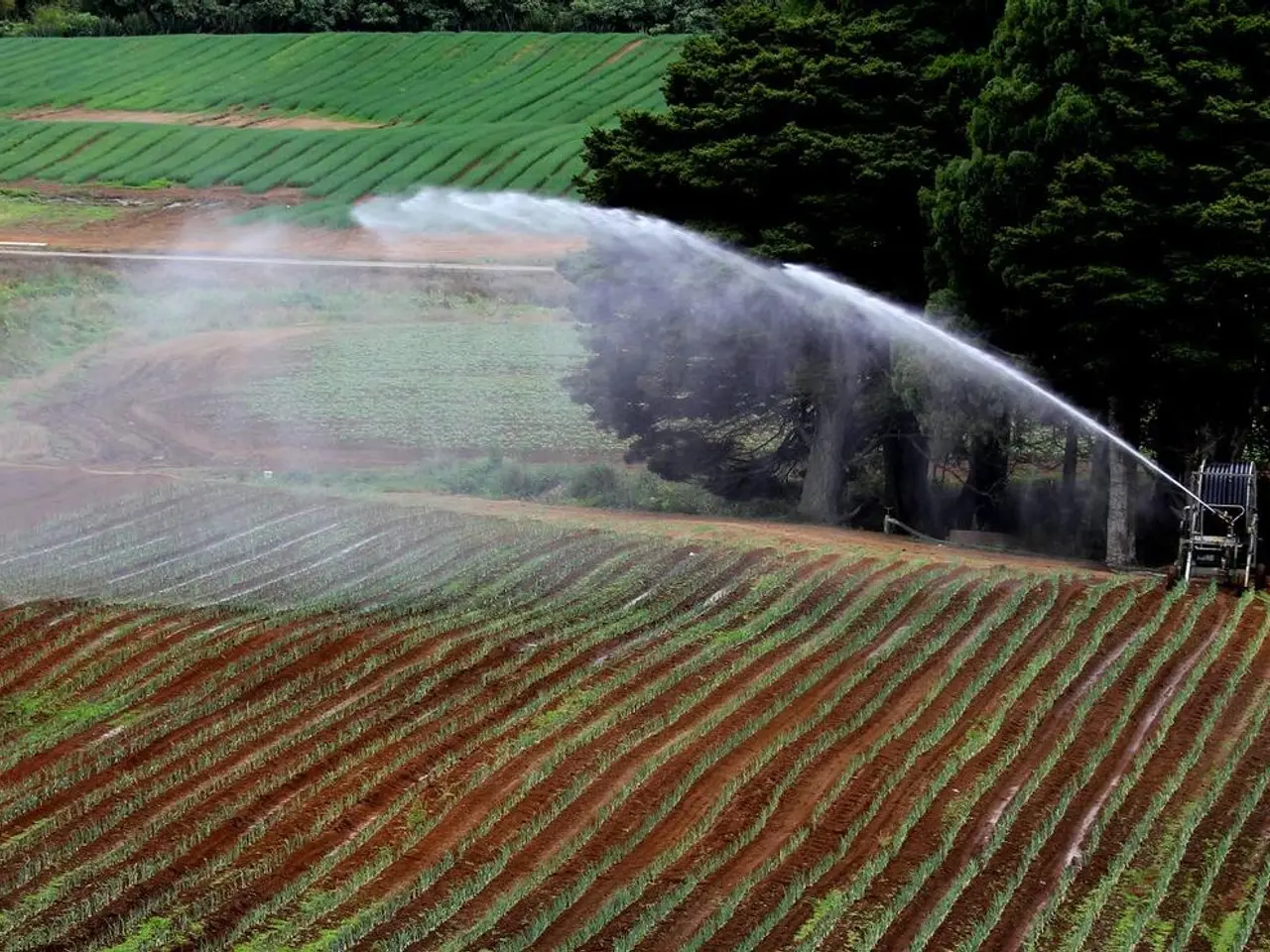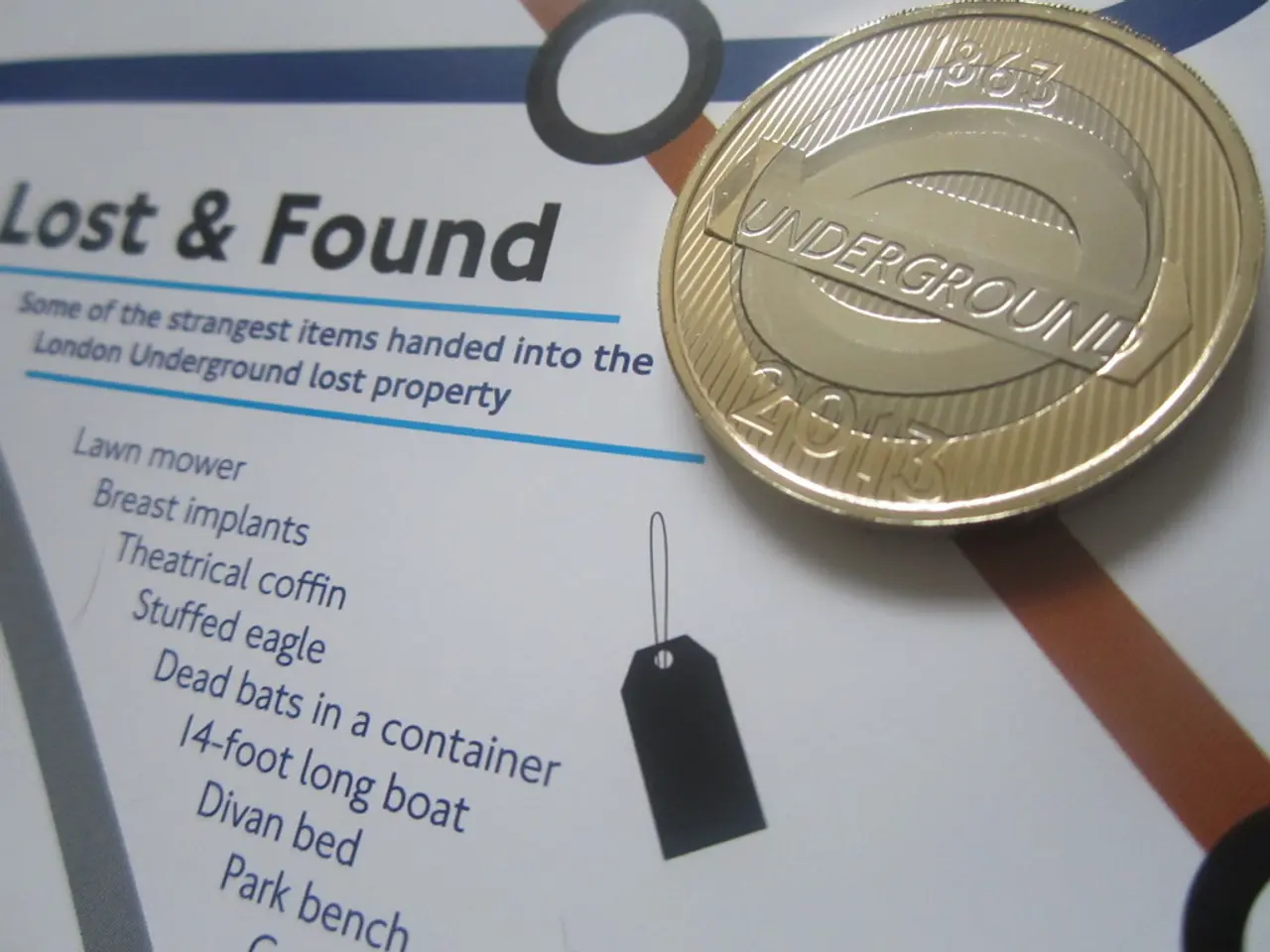Parliament in the UK advocates for drafting fresh laws to curb compulsory work practices in commercial supply chains
UK Parliament's Joint Committee on Human Rights Publishes Report on Forced Labour in Supply Chains
The UK Parliament's Joint Committee on Human Rights (JCHR) has published a report outlining the inadequacies of the current legal framework in addressing forced labour in supply chains. The report, published on 24th July 2025, recommends significant legislative changes to tackle this issue.
The JCHR calls for mandatory human rights due diligence for companies, a ban on imports of goods linked to forced labour, and civil liability for companies failing to prevent forced labour in their supply chains. The Committee urges the UK government to introduce these measures within one year, by July 2026.
The report highlights that the UK is lagging behind the US and EU in tackling forced labour. It identifies five high-risk sectors: electronics, garments, fish, timber, and textiles. The Committee also recommends explicitly including forced labour provisions in future trade deals.
If adopted, these measures would require UK businesses to significantly enhance efforts to combat forced labour in their supply chains. The burden on companies would be to prove they had adequate procedures in place to prevent forced labour.
However, the report does not provide details on the extent or scale of forced labour in UK supply chains. It does not specify which industries or goods are found to be involved in forced labour, but it recommends creating import bans on goods linked to forced labour.
The Proceeds of Crime Act 2002 is currently under-utilized in seizing goods linked to forced labour. The Committee recommends strengthening section 54 of the Modern Slavery Act 2015 by establishing effective accountability mechanisms for non-compliance and removing section 54(4)(b), to prohibit companies from reporting that they have taken no action.
The report also suggests considering effective methods for assessing the impact of human rights clauses on trading partners in future free-trade agreements. The government is recommended to consult with industry and keep the EU's process on the Corporate Sustainability Due Diligence Directive ((EU) 2024/1760) in mind for consistency of requirements.
The UK government now has two months to respond to these recommendations. As of early August 2025, no official government response has been published yet, but the two-month deadline for a reply is imminent, placing the government response due by late September 2025.
The JCHR's report on forced labour in supply chains, published on 24th July 2025, implies a need for UK businesses to make substantial advancements in finance, policy-and-legislation, and general-news sectors, as it recommends stringent measures to tackle the issue. The Committee proposes mandatory human rights due diligence, import bans on goods linked to forced labour, and civil liability for companies failing to prevent it, urging the UK government to implement these changes within one year. This report underscores the importance of politics and business in combating forced labour, as it highlights the UK's lag behind the US and EU, suggests improvements to existing legislation, and recommends aligning future trade deals with human rights provisions.




